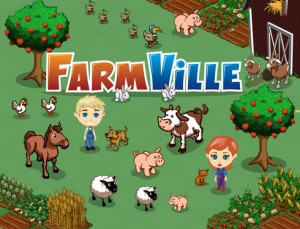Las Vegas trips? Company happy hour? Acupuncture?
If this doesn’t sound like your workplace, then let me introduce you to the free-wheeling life at one of the top Silicon Valley startups: Zynga. Sounds like a pretty nice place to work and it sounds like they may be taking a page out of Google’s playbook of spoiling employees in hopes that they’ll work harder (and better) for the company.
There’s only one tiny, minor hiccup: behind all of those well-publicized perks is a company that demands the world out of their employees, especially as they lead to an IPO. In short, they might be a bit “tough” on their workers.
The CEO and driving culture
You may have caught a recent piece in The New York Times about Zynga, the famous game-maker of Facebook annoyances like FarmVille or Mafia Wars. In the article, they say:
Few Internet start-ups have grown as swiftly as Zynga, creator of a sprawling network of virtual farms, cities and poker tables that is preparing to go public in one of the most highly anticipated offerings this year.
Led by the hard-charging (CEO Mark) Pincus, the company operates like a federation of city-states, with autonomous teams for each game, like FarmVille and CityVille. At times, it can be a messy and ruthless war. Employees log long hours, managers relentlessly track progress, and the weak links are demoted or let go.
But that culture, which has been at the root of Zynga’s success, could become a serious liability, warn several former senior employees who agreed to speak on the condition of anonymity because of fear of reprisals.”
The company rewards its employees heavily but it also expects a ton out of them. When someone talks about work-life balance, that concept can be foreign to those working in a start-up culture. When you’re talking about the high risk/high reward game of technology development, timing is everything.

Is this bad for talent? In the long run, sure. Not too many people get out of their 30’s still doing this sort of work. But there are plenty of opportunities for talented programers and developers who want a more balanced lifestyle. Will that get you in on the ground floor of a pre-IPO stock? Nope, but that’s a choice too.
Disregarding culture early
I hate to put culture to the side because I do believe it can be important. But, start-up culture isn’t the same and can’t be compared. As Michael Arrington, former Editor and Founder of Techcrunch relayed in a post on his Uncrunched blog, these sorts of concerns have been around for a long time. And he has words of advice to people who are in the midst of start-up central:
If you work at a start-up and you think you’re working too hard and sacrificing too much, find a job somewhere else that will cater to your needs.
But if deep down you know that you’re part of history, that the things you are building will be written about and thought about forever, then maybe after that good cry after a short sleep under your desk you’ll pull yourself together and remember. That you are a person in the Arena. A Pirate. That you are here to make a dent in the universe.”
So you can sleep when you’re dead? Maybe that’s taking it a bit too far, but you have to know what you’re getting into. A company in Zynga’s position, especially in pre-IPO mode, is a ball of stress. And yes, while it is stressful, it is also exciting, terrifying and every emotion in between too.
As Arrington also points out in a follow-up post, the unfortunate timing of this story means Zynga has no way to defend or explain itself as it is in the IPO quiet period.
Looking for an edge
While culture and balance is important, companies in this competitive atmosphere are looking for an edge. Sometimes, that means getting lucky and striking gold. Sometimes, it’s just that you’re better than everyone else.
Most of the time though, it means you’re working your ass off. All of the time. And if that means churning through developers in 12-24 months instead of years, that’s what you have to do until you hit the level of a Microsoft, Apple, or Google. The other option is to grow too complacent too early and then lose everything.
And if you think about start-ups like I do, you probably don’t think there’s a third option, either.